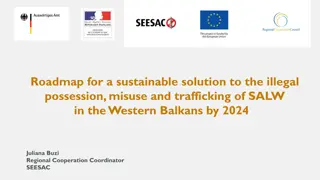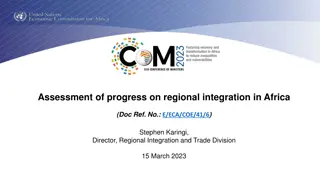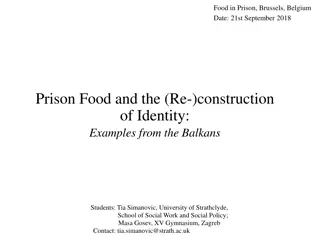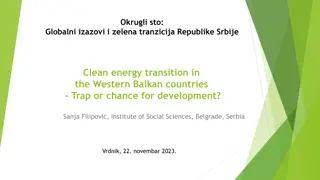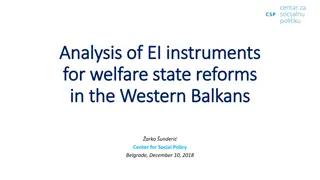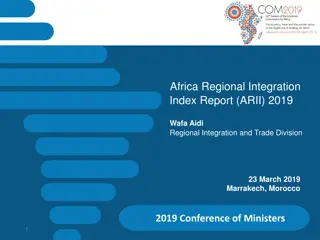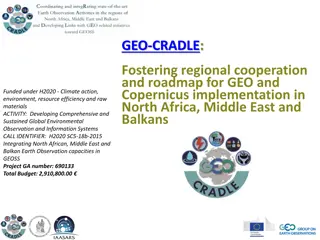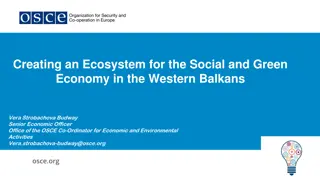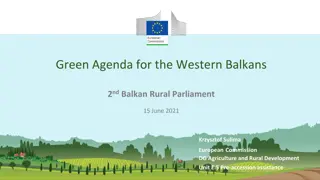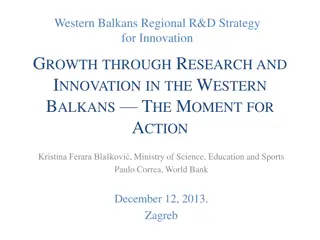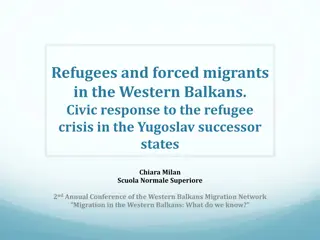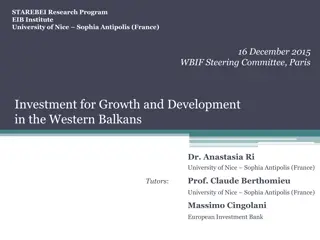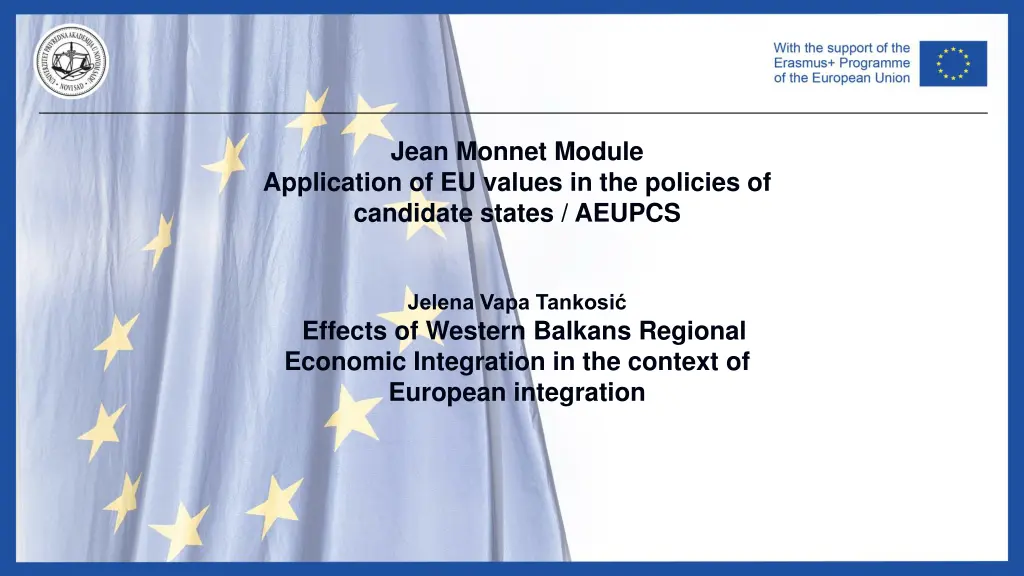
Effects of Western Balkans Regional Economic Integration
Integration with the European Union drives economic, political, and social transformation in the Western Balkans. While progress has been made, challenges in structural transformation and economic convergence persist, impacting factors like productivity and market access. Continued efforts towards EU integration and economic harmonization are crucial for the region's development.
Download Presentation

Please find below an Image/Link to download the presentation.
The content on the website is provided AS IS for your information and personal use only. It may not be sold, licensed, or shared on other websites without obtaining consent from the author. If you encounter any issues during the download, it is possible that the publisher has removed the file from their server.
You are allowed to download the files provided on this website for personal or commercial use, subject to the condition that they are used lawfully. All files are the property of their respective owners.
The content on the website is provided AS IS for your information and personal use only. It may not be sold, licensed, or shared on other websites without obtaining consent from the author.
E N D
Presentation Transcript
Jean Monnet Module Application of EU values in the policies of candidate states / AEUPCS Jelena Vapa Tankosi Effects of Western Balkans Regional Economic Integration in the context of European integration
Effects of Western Balkans Regional Economic Integration in the context of European integration Integration with the European Union is an important driver of economic, political and social transformation in the Western Balkan. Empirical evidence showing a strong link between EU-related structural reforms (towards the Copenhagen Criteria) and economic growth (Besimi & Monastiriotis, 2019). Learn from the experience of 2004 enlargement, 2008 and 2013. The transition to market economy & structural reforms.
Effects of Western Balkans Regional Economic Integration in the context of European integration While the region has achieved substantial progress on price liberalization, trade, foreign exchange management, and small scale privatization, structural transformation lags behind other small transition economies in Europe (World Bank, 2017b, p.3). high underutilization of factors of production (capital and labor), low productivity and consumption as the dominant driver of economic growth. macroeconomic risks due to unfinished reforms.
Effects of Western Balkans Regional Economic Integration in the context of European integration Real changes and economic effects can be expected after the full economic integration of the WB economy in the EU and its full economic convergence towards EU markets (this will take several years). changes in the customs regime institutional changes access to EU structural funds
Effects of Western Balkans Regional Economic Integration in the context of European integration current forms of economic integration under the auspices of the CEFTA agreement provide a solid basis for further progress of the region in terms of attracting investments. different progress of countries in the EU integration process adversely affects the harmonization of economic priorities and reforms between the countries of the region. this is not aided by the non-tariff barriers that WB countries impose on each other in various ways.
Effects of Western Balkans Regional Economic Integration in the context of European integration The general assumption regarding the effects of the establishment of the Regional Economic Area and its positive impact on the economies of the Western Balkans largely depends on the commitment of regional actors primarily in implementing economic reforms that will in themselves lead to increased investment, exports and private sector strengthening.
Effects of Western Balkans Regional Economic Integration in the context of European integration In terms of greater economic integration of the region through the CEFTA arrangement, it can be concluded that it has yielded results in terms of increasing its competitiveness and investment attractiveness. Greater regional integration has many dimensions that would create positive spillovers for global integration. These include trade, the financial sector, transport, regulatory and investment policy, and macroeconomic and fiscal policy (World Bank Group, 2017a, p.72).
Further reading for discussion Besimi, F., Monastiriotis, V. (2019).The Role of EU Integration in Accelerating Structural Reforms in the Western Balkans: Evidence, Theory and Policy," LEQS LSE 'Europe in Question' Discussion Paper Series 140, European Institute, LSE. World BankGroup (2017a). The Western Balkans: Revving Up the Engines of Growth and Prosperity. Western Balkans Regional Systematic Country Diagnostics Synthesis Report. The World Bank, Washington, D.C. World Bank Group (2017b). Western Balkans : Regional Economic Integration Issues Notes. World Bank, Vienna.
Further reading Medovi , V., Vapa-Tankosi , J. (2017). Izazovi u primeni Sporazuma o stabilizaciji i pridru ivanju i pravnih tekovina Evropske unije, Fakultet za ekonomiju i in enjerskimenad ment, Novi Sad. ISBN 978-86- 87619-90-6. Medjak, V. (ed.). (2018). Effects of Stabilisation and Association Agreements and CEFTA2006 on WB6 European Integration and Regional Cooperation: Achievements and Ways Forward. European Movement in Serbia,Belgrade. Bjeli , P., Dragutinovi , Mitrovi , R. (2018). Unapre enje pozicije Srbije u okviru CEFTA 2006, FREN Fondacija za razvoj ekonomske nauke, Beograd.



